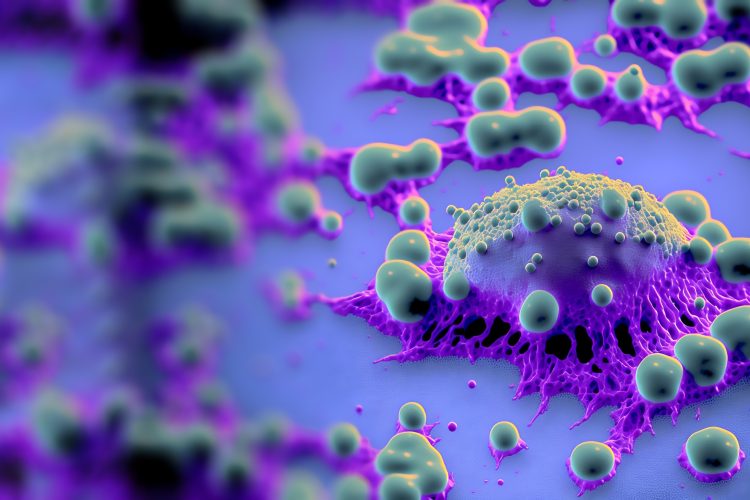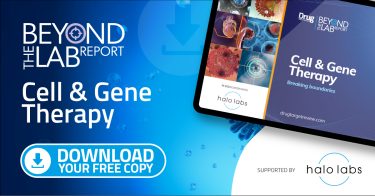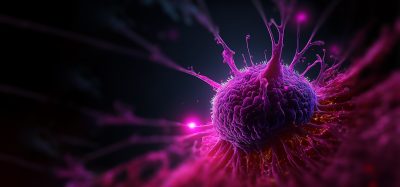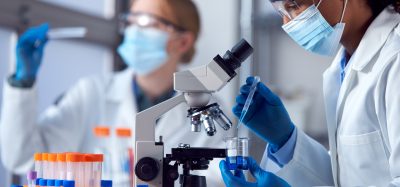Reprogramming immune-suppressive macrophages in tumours
Posted: 24 May 2024 | Drug Target Review | No comments yet
A novel drug, JHU083, turns into its active, glutamine-blocking form inside tumours, shrinking prostate and bladder cancers in mice.


Researchers from Johns Hopkins School of Medicine have developed a new therapy that reprogrammes immune cells to promote antitumour activity. This shrunk difficult-to-treat prostate and bladder cancers in mice.
Immunotherapies have revolutionised many types of cancer, yet they have not been effective in aggressive forms of prostate and bladder cancer. The study’s senior author, Dr Jelani Zarif, Robert E. Meyerhoff Endowed Professor and associate professor of oncology at Johns Hopkins, hypothesised alongside his colleagues that macrophages were responsible for the immunotherapy ineffectiveness. He commented: “The focus of our work is to reprogramme the immune-suppressive tumour-associated macrophages into anticancer immune cells to enhance therapeutic responses to immunotherapies and other standard-of-care cancer therapies.”
According to findings by the team, immune-suppressing macrophages rely on the amino acid glutamine. They previously showed that macrophage precursor cells named monocytes will differentiate into immune-activating macrophages if they are produced in a laboratory setting without glutamine. Alternately, when monocytes are grown with glutamine, they become immune-suppressing macrophages.
The researchers believed that drugs preventing the immune cells from accessing glutamine would increase the number of immune-stimulating macrophages and minimise tumours. A drug named 6-diazo-5-oxo-L-norleucine (DON) starves tumours of glutamine, and in studies has been shown to shrink tumours that depend on glutamine to grow. However, its development as a therapy for cancer was disregarded because it was toxic to the gastrointestinal system.
Co-authors Dr Barbara Slusher, director of Johns Hopkins Drug Discovery, and Dr Jonathan Powell, former associate director of the Bloomberg Kimmel Institute for Cancer Immunotherapy, developed an experimental glutamine-blocking drug. Called JHU083, it is a prodrug that is converted into an active drug once inside the body’s cells, only turning into its active, glutamine-blocking form inside the tumour. This stops harmful side effects occurring elsewhere in the body. Studies indicate that the drug shrinks tumours, reduces metastases and increases survival in animals with cancers of the skin, colon, blood and brain. It also demonstrates these effects in specific treatment-resistant breast cancers. Dr Zarif added that because the active form is only released to cancer cells, a lower dose is required, thereby further reducing side effects.
In the new study, JHU083 prevented the use of glutamine in mice prostate and bladder tumours, lessening tumour growth, initiating tumour cell death, and reprogramming immune-suppressing macrophages into immune-boosting macrophages. Furthermore, the macrophages began to destroy tumour cells, and recruited T cells and natural killer (NK) cells.
Although adding a checkpoint inhibitor did not increase the effects of JHU083, Dr Zarif added this is likely because there was already so much antitumour immune activity in the JHU083-treated tumours. “JHU083 could be a promising anti-cancer therapy for tumours with immune-suppressing macrophages and too few T-cells,” he stated. “It might also be a promising agent for tumours that do not respond to checkpoint inhibitors.”
The researchers plan to work with colleagues at Johns Hopkins to launch a clinical trial of JHU083 in patients with treatment-resistant prostate or bladder cancer. Also, they aim to elucidate whether combining JHU083 with other treatments improves its effectiveness against tumours.
This study was published in Cancer Immunology Research.
Related topics
Cancer research, Clinical Trials, Drug Development, Drug Targets, Immunotherapy, In Vivo, Oncology
Related conditions
Bladder cancer, Cancer Research, Prostate cancer









